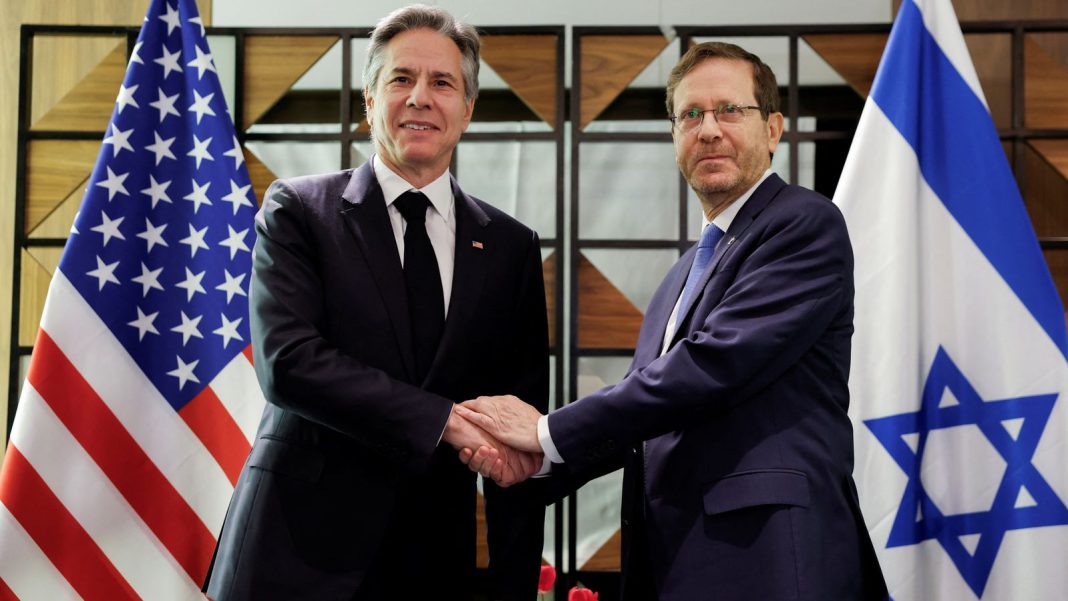Blinken in Israel with carrots and sticks as American opposition to war grows
Antony Blinken has arrived in Israel for his fourth visit in three months, with the situation worsening not improving, as he and the White House might have hoped.
Pressing issues like securing more humanitarian aid for Gazans and the release of more than 130 hostages, have been overshadowed by a growing prospect of a new war between Israel and Hezbollah in Lebanon.
In his press statements over recent days, Mr Blinken has seemed frustrated by Israel and its reluctance to act on American advice, or at least the slow pace at change.
In Doha, Mr Blinken described the current level of aid as “insufficient”, said Israel needed to “better protect civilians”, described Israeli government statements about building Israeli settlements in Gaza as “irresponsible” and made a point of praising the UN for playing an “irreplaceable role” delivering aid – Israel has been highly critical of the UN.
In the days after the 7 October attacks, the US positioned two aircraft carrier groups in the Mediterranean. These were supposed to act as a deterrent to Hezbollah and Iran, not as military cover to enable Israel to expand the conflict.
Officially, the withdrawal of the USS Gerald Ford strike group was for operational reasons – its tour had already been extended twice – but US diplomats in the region told Sky News that the move had taken Israeli officials by surprise, but it was no bad thing if that provided a reminder to Israel that US support wasn’t unequivocal.
The messages from Lebanon, and major regional actors, is that an expansion of the conflict is in no-one’s interest but whilst the fighting in Gaza remains intense and no plan for ‘the day after’ agreed upon, it is clearly proving difficult to make diplomatic progress on many fronts.
Arab governments simply aren’t willing to throw money, or political capital at the problem, until a “practical pathway” for the Palestinian people can be worked through.
Mr Blinken needs to convince Israeli leaders that it is in their interests to reduce tensions and pull back from the most fierce fighting in Gaza, whilst also recognising that Hamas remains operational and a threat inside Gaza and Israel’s objectives are yet to be achieved.
He has some carrots: the resumption of Saudi normalisation talks, the possibility of agreeing a formal border with Lebanon, and a deal to release more, if not all, the hostages from Gaza.
All or any of these would require a significant and swift change to the situation in Gaza however.
He has some sticks too: the US could reduce the military aid it is providing to Israel, or it could remove the diplomatic cover it has given Israel in the UN.
The White House won’t step away from Israel’s side but equally the administration knows it is becoming increasingly isolated on the world stage and is getting little in return for its support of Israeli Prime Minister Benjamin Netanyahu. Opposition to the war is also growing in the US, as President Biden found out on Monday evening when he was heckled at a political rally.
Later today, Mr Blinken will hold another news conference after meetings with the Israeli war cabinet – we might get a better idea then, whether Israel is now prepared to listen more willing to its closest ally and act, or if America’s pleas are again falling on deaf ears.







